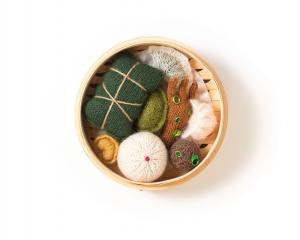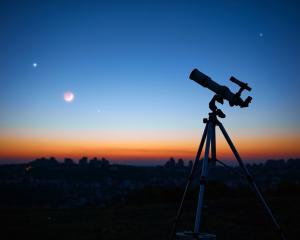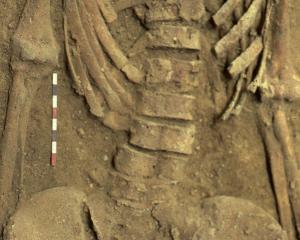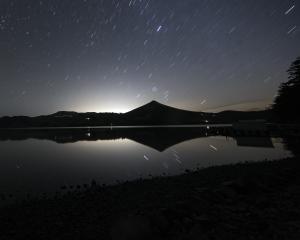
We breathe all the time, without thinking about it, because we need oxygen. Oxygen comes in through the lungs, enters the blood stream, and enables the breakdown of food into energy. Oxygen repairs cells, contracts muscles and feeds the brain. On Earth, at least, oxygen is essential for life.
The average adult person takes about 16 breaths per minute, so that's 20,000 breaths per day - perhaps something like 600 million breaths in a lifetime. Small breaths add up to about 2000 litres of oxygen breathed in every day. But humans aren't very efficient; we breathe out about three quarters ¾of the oxygen we breathe in, so each adult actually uses something like 550 litres of pure oxygen every day. That's the capacity of a large compost bin, or 733 wine bottles. Multiply that by human lifespans and the population of the Earth - people breathe a lot of oxygen.
Where does all that oxygen come from? Plants and algae are our allies here. They do the hard yards collecting CO2 and water, then using energy from the sun to turn it into growth and oxygen - the process of photosynthesis. About half the oxygen produced comes from trees and grasses on land. The rest comes from the sea, bubbling up from tiny floating plant cells (phytoplankton) and seaweeds.
Meet the most amazing oxygen-producer on the planet: Prochlorococcus. Scientists think that this one astonishingly abundant group of cells produces 20% of all the oxygen on Earth. What's even more amazing is that it was unknown to science until 1988. There's still a lot to be discovered in the sea.
Procholorococcus is very similar to the oldest known fossil on Earth. A tiny marine blue-green cyanobacterium, it lived in the ocean about 3.5 billion years ago, soon after life on Earth began. These little cells mastered photosynthesis, collecting CO2 and water in order to grow, and producing oxygen. Back then, there was very little oxygen in Earth's atmosphere. Very slowly, molecule by molecule, these tiny cells changed a whole planet's air. By about 2 billion years ago, there was enough oxygen in the atmosphere to make iron rust.
In some ways, the Great Oxidation Event of 2.4 billion-2 billion years ago was the worst air-pollution ever experienced on Earth. Certainly a whole new kind of life had to evolve to manage an atmosphere with oxygen. But oxygen turned out to be an excellent source of energy, which allowed the development of large and complex life-forms - like us.
Since then oxygen in the atmosphere has, more or less, gradually increased. A useful by-product of oxygen (O2) is ozone (O3), which creates a blanket in the upper atmosphere that shields us from damaging UV-radiation. It was probably this shielding that allowed life to climb out on to land, leaving the protection of the ocean.
Oxygen now makes up 21% of the atmosphere, about half of it produced by marine phytoplankton and seaweeds. Every second breath we take is, in fact, due to their hard work. As an added bonus, they remove CO2 from the atmosphere - much of the carbon they make sinks to the seafloor, removed semi-permanently from influencing climate.
Plankton don't need much to survive: sunshine, CO2 and water are all in good supply, and many places have the specific nutrients they need, such as iron. So are they OK? Scientists suggest not. Many phytoplankton survive best in cool waters; it has been estimated that warming oceans now contain 40% fewer phytoplankton compared with the 1950s. In some places, populations of phytoplankton have gradually moved to higher latitudes, seeking out cooler waters. As they are the basis of the marine food chain, fish (and people who catch them) are on the move too. Recent studies suggest that phytoplankton are also vulnerable to chemicals that come from degrading plastics in the ocean.
You wouldn't think that tiny green cells floating in the sea were worth much. But as we have seen, marine phytoplankton couldn't be more important to life in the sea and on land, including everyone who breathes. We would suffocate without them.
Abby Smith is a professor of marine science at the University of Otago. Each week in this column, one of a panel of writers addresses issues of sustainability.













